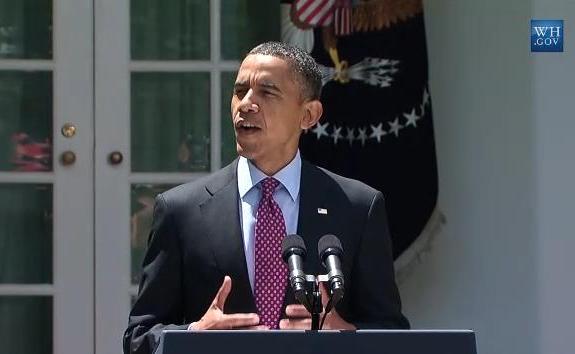The Obama administration announced today that it will offer indefinite reprieves from deportation for young immigrants who were brought to the country as minors and meet other specific requirements. The move, hailed by immigration advocates as a bold response to the broken immigration system, temporarily eliminates the possibility of deportation for youths who would qualify for relief under the DREAM Act, giving Congress the space needed to craft a bipartisan solution that gives permanent residence to qualifying young people. In a statement from the White House, President Obama said the policy was “the right thing to do,” calling DREAMers “Americans in their hearts, in their minds, in every single way but one: on paper.”
According to a memorandum from the Department of Homeland Security, immigrants may apply for a two-year renewable grant of “deferred action” if they entered the United States before age 16; are 30 or younger; have lived continuously in the United States for at least five years; have not been convicted of a felony or significant misdemeanor; and are currently in school, have graduated from high school or earned a GED, or served in the military. Although not granted lawful immigration status, recipients will be able to obtain work permits under existing regulations.
Today’s memo, issued by DHS Secretary Janet Napolitano, comes almost exactly one year after the release of a memo from ICE Director John Morton setting forth an extensive list of factors for agents to consider when exercising prosecutorial discretion. The so-called “Morton memo” was initially hailed by immigrant advocates, who believed it would prevent the removal of foreign nationals who would have qualified for relief under the DREAM Act. Calls for bolder executive action grew stronger, however, after an ongoing review of pending removal cases yielded disappointing results and examples continued to surface of immigrants being denied prosecutorial discretion despite compelling circumstances.
Although not defined under federal regulations, deferred action has long been used by U.S. presidents to prevent the removal of immigrants for humanitarian reasons. Contrary to some headlines, immigrants who are granted deferred action—which can be revoked without notice at any time—will not receive “immunity” from removal. In addition, although they will be permitted to apply for work permits, immigrants who receive deferred action will not receive green cards or any other lawful immigration status, will not be permitted to sponsor family members, and may be unable to travel abroad.
According to the memo and a Q&A released by the administration, immigrants who are not currently in removal proceedings will have to submit applications demonstrating their eligibility for deferred action. Meanwhile, immigrants who are currently in removal proceedings will be eligible for deferred action, even if they previously declined an offer of “administrative closure” under the ongoing case review process. Although eligibility determinations will be made on a case-by-case basis, administration officials said that immigrants who satisfy the criteria in the memo should presumptively be granted deferred action. Secretary
Napolitano’s memo comes two weeks after nearly 100 law professors sent a letter to President Obama outlining his authority to provide temporary relief from deportation. The announcement also comes on the thirtieth anniversary of the Supreme Court’s decision in Plyler v. Doe, which held that states cannot exclude undocumented schoolchildren from elementary and secondary schools.
WATCH:
FILED UNDER: DACA, Deferred Action, Department of Homeland Security, Executive Branch, Immigration Law, Janet Napolitano, prosecutorial discretion, undocumented immigration



